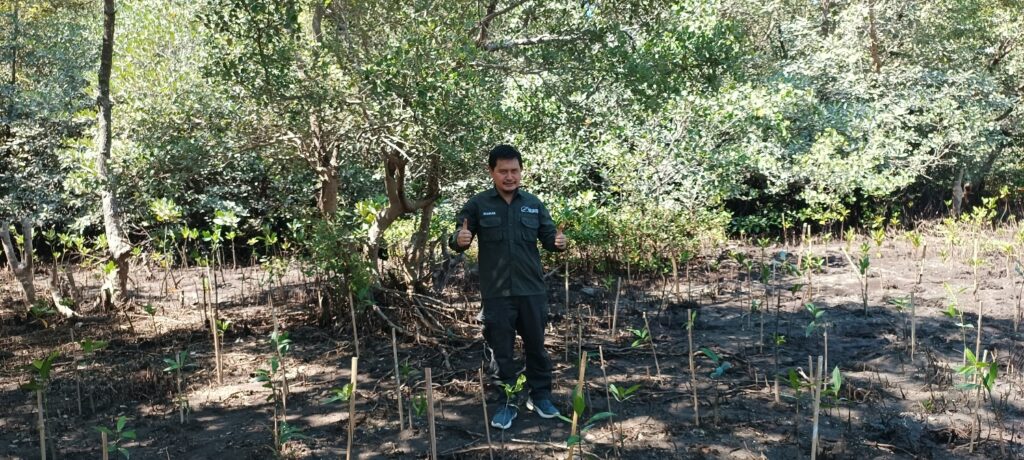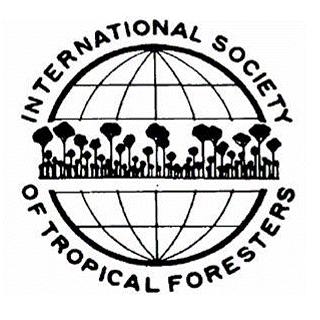Mangrove Restoration at Meras, North Sulawesi, Indonesia
Mangrove forests are among the most effective ecosystems on the planet for carbon sequestration, owing to their unique ability to rapidly convert carbon dioxide into biomass. Located in Meras, North Sulawesi Indonesia, these forests exemplify nature’s resilience and ecological importance. Here, species such as Rhizophora, Avicennia, and Sonneratia thrive, creating a rich tapestry of biodiversity that is crucial for the stability of marine and bird populations. These forests are not just biological treasures; they are also pivotal in stabilizing shorelines, filtering water, and providing protection against natural disasters like tsunamis and storms.

Mangroves accomplish these ecological feats under challenging conditions. They grow in waterlogged, anaerobic soils which slow down the decomposition of organic matter, allowing carbon to accumulate. This stored carbon forms a significant part of the earth’s carbon budget, making mangroves vital in efforts to mitigate climate change. Additionally, the complex root systems of these trees trap sediments rich in organic carbon, which are buried and stored over long periods, further contributing to their role as substantial carbon sinks.
However, the importance of mangroves extends beyond their environmental impact. In Meras, local communities depend heavily on these ecosystems for their livelihoods. The resources provided by mangroves, including timber and non-timber products, are integral to the local economy. Moreover, there is an emerging recognition of the potential for eco-tourism, which could offer sustainable economic opportunities while fostering environmental stewardship. Recognizing the indispensable role of these ecosystems, the Forestry Study Program at Sam Ratulangi University has initiated a collaborative effort for mangrove restoration. This venture seeks to involve the community, including local leaders, in long-term partnerships that focus not only on planting new trees but also on maintaining existing ones, such as clearing the mangroves of trash and other debris. Such maintenance is vital for the health and longevity of these forests.
We invite all stakeholders to appreciate and participate in preserving this precious natural gift. The involvement of each individual and group is crucial to ensuring that these vital ecosystems continue to flourish. Through collective action, we can safeguard these environments for future generations, ensuring that they continue to offer their manifold benefits ranging from biodiversity conservation to climate change mitigation.
In conclusion, the mangrove forests of Meras are not only ecological powerhouses but also key to local and global environmental strategies. Their ability to store carbon, combined with their critical role in local economies and in protecting against environmental hazards, underscores the need for sustained conservation efforts. The ongoing initiatives by educational institutions and community groups highlight a proactive approach to environmental stewardship and sustainable development, aiming to maintain the delicate balance of these unique ecosystems while enhancing their value for future generations.
Author:
Martina Langi
Lecturer and Researcher
Sam Ratulangi University
Manado, North Sulawesi, Indonesia
Contact: mlangi.kehutanan@gmail.com
To stay up to date with interesting news and gain greater access to all ISTF updates, sign up for ISTF communications through our Membership Survey!
